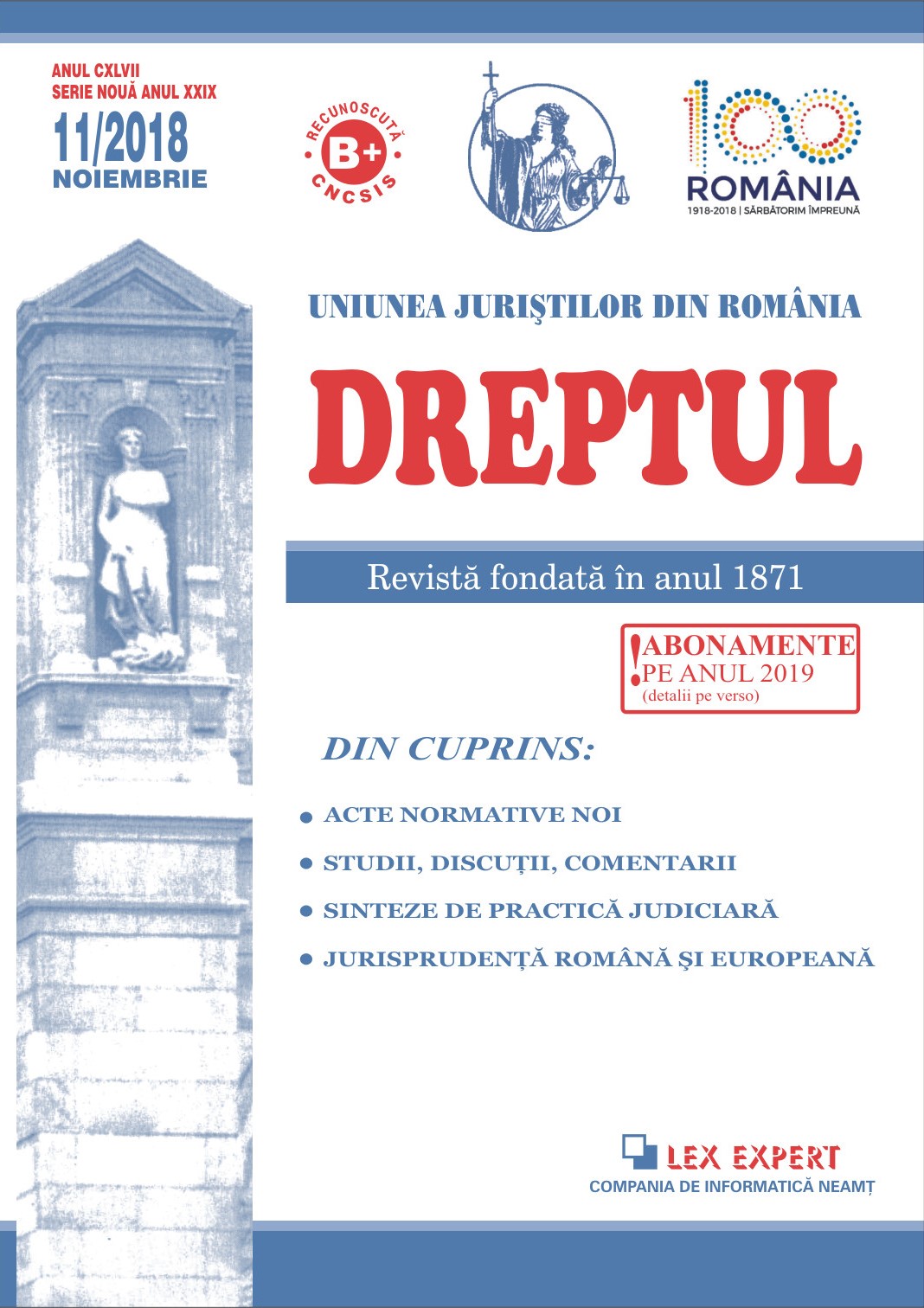Au tradițiile constituționale rol explicativ pentru filosofia dreptului public și rol evocator pentru istoria politică a unui popor?
Do the constitutional traditions have a constitutional role for the philosophy of the public law and an evocative role for the political history of a people?
Author(s): Cristian IonescuSubject(s): Law, Constitution, Jurisprudence
Published by: Uniunea Juriștilor din România
Keywords: constitutional traditions; philosophy of public law; Constitution; national legal order.
Summary/Abstract: The declarative establishment of democratic traditions or insurrectional ideals at a constitutional level is legitimate and explicable as an element of public law philosophy and social psychology, but also of national identification, especially in situations where the Constituent Assembly established a democratic political regime, opened to the aspirations of a nation that has liberated itself from the authoritarianism of a tyrannical government system. However, the issue we are raising is whether democratic traditions are justified in a normative regulation. In my opinion, the proper place to preserve the national values and the historical political and juridical traditions of a people cannot be the normative text of the Constitution, because it, as a fundamental normative act, from the point of view of positive law, has the role to regulate political, social and economic relations and others as valid social phenomena measurable politically and legally. The original place of the traditions and values of a community lies in its public consciousness and in the general lifestyle. Here, they retain intact the ideological content and form, as they penetrated through objective scientific knowledge, as well as through a spiritual path in the individual’s consciousness, and extended to successive generations. In this way, democratic traditions acquire an explanatory role for the philosophy of public law. A question arises: if democratic traditions are transposed by constitutional norms in the national legal order and converted into constitutional traditions, can they be challenged scientifically and historically? Contesting the democratic traditions in a scientific work or denying their existence, as well as legislating some areas of social life without considering the Romanian constitutional traditions, are subjected to malpractice or even sanctioned by the law?
Journal: Revista „Dreptul”
- Issue Year: 2018
- Issue No: 11
- Page Range: 54-60
- Page Count: 7
- Language: Romanian
- Content File-PDF

